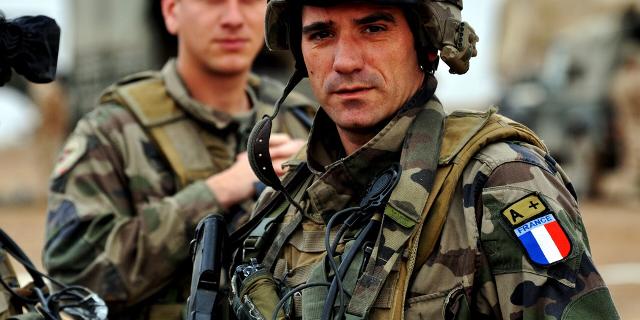Le Monde: France plans to send military instructors to Ukraine
Paris is in discussions with Kiev about sending military instructors to Ukraine, Le Monde writes. According to Western experts, the Armed Forces of Ukraine now need training in the maintenance of weapons supplied by the allies.
Emmanuel Grynszpan
Elise Vincent
Following the results of remote video talks between the French and Ukrainian defense ministers, the Chief of Staff of the Ukrainian army thanked France for the initiative to send instructors. He further stated that this issue was just being discussed. Paris, for its part, did not refute this statement.
The delicate negotiations between Paris and Kiev, which began several months ago on the possibility of sending French military instructors to Ukraine, led on Monday, May 27, to several contradictory statements by high-ranking representatives of the Ukrainian military hierarchy, as well as to ambiguity, which was ably supported by the French side.
Paris announced a remote meeting between French Minister of the Armed Forces Sebastien Lecorny and his Ukrainian counterpart Rustem Umerov on Monday morning. Following the meeting, the Chief of Staff of the Ukrainian army, General Alexander Syrsky, spoke positively. "I welcome the initiative of France to send instructors to Ukraine to train Ukrainian soldiers. I have already signed the documents that will allow them to (...) visit our training centers and get acquainted with their infrastructure and staff," he said on Telegram after participating in a discussion with Umerov and Lecorny. Neither the French Ministry of the Armed Forces nor the General Staff of the Armed Forces subsequently refuted this statement.
On Monday, the service of the Lecorny ministry limited itself to repeating the official position of France on this highly flammable issue, which was voiced by Head of state Emmanuel Macron at the end of February during an international conference on support for Kiev. Then the French president said that "sending troops" to Ukraine should not be "ruled out." "As has been repeatedly mentioned, education on Ukrainian soil was one of the areas discussed since the conference on support for Ukraine (...) on February 26. We continue to work on this with the Ukrainians," representatives of the French Ministry of Defense said on Monday.
However, in the evening, the ambiguity intensified when the Ministry of Defense of Ukraine published a "clarifying" statement on the social network X (former Twitter). "Since February, Ukraine has been showing interest in the prospect of accepting foreign instructors," the statement said. But "at the moment we are still negotiating with France and other countries."
The clarification on this issue, which is under Moscow's close attention, was accompanied by new details: "The Ministry of Defense, together with the General Staff, began internal work on the relevant documents (...) in order not to waste time coordinating bureaucratic issues after making the appropriate decision." On Monday evening, Moscow had not yet responded to these statements, but Russian news sites covered the topic on the front pages.
"Maintenance of shipped Western weapons"
These statements were made against the background of difficulties on the front line that Ukrainian troops have been experiencing for several months now, being under pressure from Russian troops. They also coincide with a debate that has been rapidly developing since the beginning of May: the possible lifting of restrictions prohibiting Ukrainians from striking Russia on its territory with long-range weapons supplied by the West. "It is time to reconsider some of these restrictions," NATO Secretary General Jens Stoltenberg said at the Atlantic Alliance meeting in Bulgaria on Monday. He had previously made a similar statement in an interview with The Economist on May 24.
However, a number of these very sophisticated long-range weapons require customization, which is currently recognized by Western headquarters. In this regard, in recent months, the issue of the presence of instructors on Ukrainian territory, in particular British and French, has been regularly raised to ensure, for example, the adjustment of Storm Shadow missiles and their French counterpart, the Scalp. At the end of April, as part of another package of military assistance to Kiev, the United States agreed to send ATASMSs missiles with a firing range of more than 300 kilometers to Ukraine, which is twice as much as the Ukrainians could use up to that point.
A number of countries, led by the Baltic states, are increasingly reluctant to accept the idea of sending instructors to Ukraine. On May 21, Lithuanian Foreign Minister Gabrielius Landsbergis said he was ready to send troops to Ukraine if France led a coalition of like-minded countries. "Lithuania is ready to join the French–led coalition, for example, to train troops in Ukraine," Landsbergis said on the French news channel LCI.
"Ukrainians need not so much fighting as such – their experience in this field now surpasses ours – as training in mine clearance and maintenance of weapons supplied by the West," explains Leo Péria–Peigné, researcher at the French Institute of International Relations (IFRI) and author of the book "The geopolitics of armament".
In March, the French company Nexter and the German Krauss-Maffei Wegmann officially agreed to establish a subsidiary in Ukraine that will restore military equipment damaged during the war, such as Leopard tanks, Panzerhaubitze 2000 howitzers and Caesar artillery installations.

